When navigating the complexities of international transactions, having a solid understanding of compliance is crucial for businesses looking to expand their global footprint. Compliance isn't just a regulatory checkbox; it safeguards your operations against potential risks and enhances your credibility in the international market. From knowing the specifics of trade agreements to understanding the nuances of foreign regulations, staying informed is key. Curious to learn more about how to streamline your international transaction compliance? Read on!
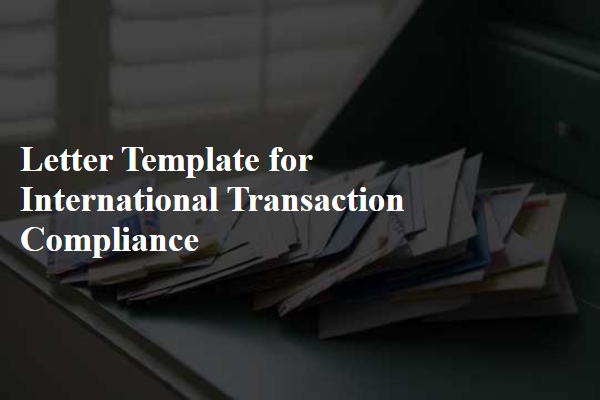
Regulatory Requirements
International transactions require strict adherence to regulatory requirements to prevent fraud and ensure compliance with laws. Financial institutions must follow guidelines set by entities like the Financial Action Task Force (FATF) and local governments to enforce anti-money laundering (AML) measures. Detailed documentation, such as transaction details (amounts exceeding $10,000 in various currencies), identification of parties involved (beneficiaries and senders), and source of funds, is critical for audits. Failure to comply can lead to significant penalties, including fines reaching millions of dollars or even criminal charges. Moreover, adherence to the Office of Foreign Assets Control (OFAC) regulations is vital to avoid engaging with sanctioned individuals or entities, further emphasizing the importance of thorough due diligence in international transactions.
Transaction Details
The international transaction compliance process requires detailed documentation to ensure adherence to regulations. Transaction details should include specific data such as the involved parties' names (including company name and address), the transaction date (indicating when the financial exchange occurred), the amount transferred (noted in both local and foreign currency), and the purpose of the transaction (details on goods or services exchanged). Additionally, reference numbers (such as invoice or order numbers) are essential for tracking and record-keeping. Compliance regulations from entities such as the Financial Action Task Force (FATF) must be adhered to, ensuring that anti-money laundering (AML) guidelines are strictly followed throughout the process of the transaction.
Risk Assessment
International transactions often require thorough compliance checks to ensure adherence to regulations and mitigate risks. Risk assessment is a critical aspect of this process, particularly when dealing with cross-border payments or trade. Financial institutions, such as banks, and businesses must evaluate factors like customer due diligence, transaction purpose, and country risk. High-risk countries, such as those with weak anti-money laundering (AML) frameworks, may necessitate enhanced scrutiny. Additionally, transaction values exceeding thresholds, like $10,000, often trigger regulatory reporting requirements. Compliance tools, including software for monitoring suspicious activity, play an essential role in maintaining adherence to the Financial Action Task Force (FATF) guidelines, thus ensuring the integrity of international financial operations.
Security Measures
International transactions pose unique security challenges that require robust measures to ensure compliance with regulatory standards. Companies involved in cross-border payments must implement Know Your Customer (KYC) protocols to verify the identities of clients and prevent fraud (identifying and authenticating customers). Encryption techniques must be employed to safeguard sensitive data during transfer, adhering to standards established by the Payment Card Industry Data Security Standard (PCI DSS). Operational frameworks must include regular audits to assess compliance with Anti-Money Laundering (AML) regulations, particularly those outlined by the Financial Action Task Force (FATF). Geographic risk assessments are crucial to identify potential exposure from specific countries classified as high-risk due to political instability, economic sanctions, or history of money laundering. Additionally, companies should remain vigilant about emerging threats such as cyberattacks, which can compromise transaction integrity and customer trust. Adhering to these security measures is vital for maintaining lawful operations and ensuring trust among international clients.
Contact Information
International transaction compliance involves a systematic process to ensure adherence to laws regulating cross-border financial activities. Entities must verify contact information, including organizational address, telephone numbers, and email addresses, to facilitate seamless communication throughout the transaction process. Accurate data for stakeholders, such as banks (e.g., Wells Fargo, HSBC), governmental bodies (like the Financial Crimes Enforcement Network or FinCEN), and compliance departments play a crucial role in anti-money laundering efforts. Additionally, regulatory requirements may involve an understanding of the specific legal frameworks in different jurisdictions, such as the Foreign Corrupt Practices Act in the United States or the European Union's Anti-Money Laundering Directive. Consistent updates and maintenance of contact information help mitigate risks associated with non-compliance, ensuring smoother operations in global trade environments.
Letter Template For International Transaction Compliance Samples
Letter template of compliance verification for international transactions
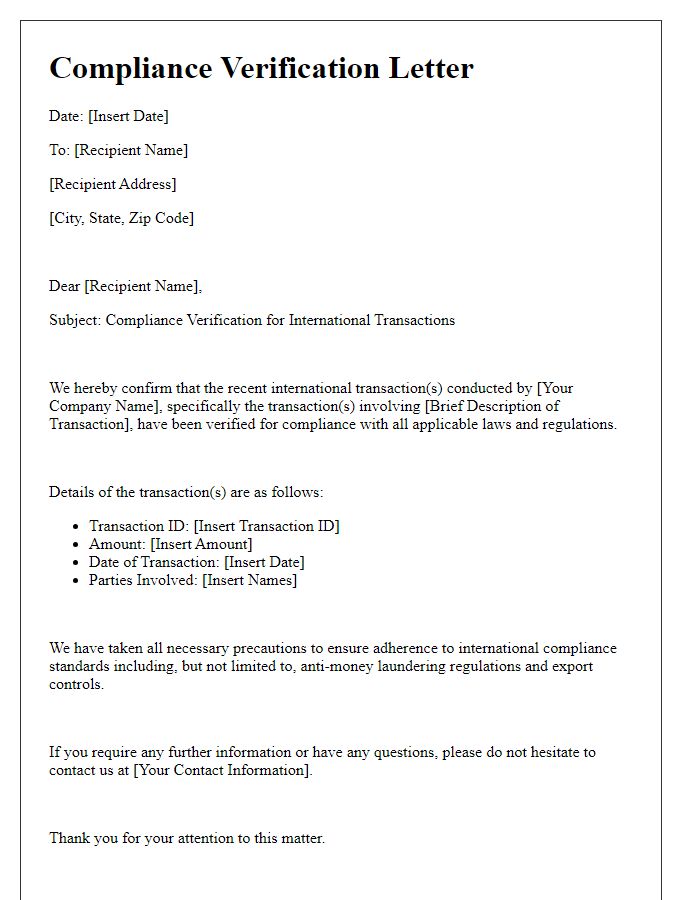

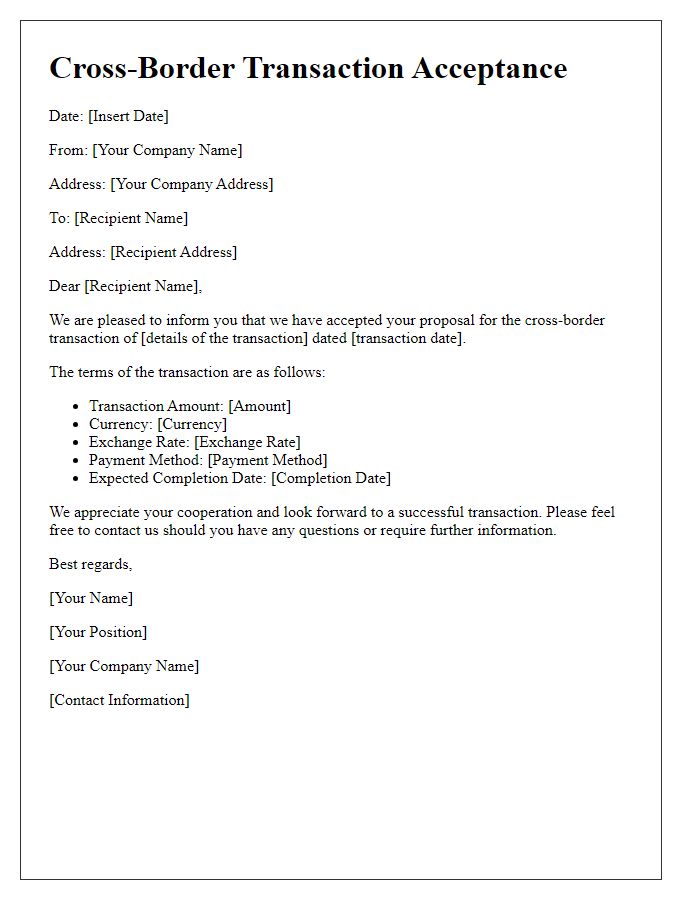
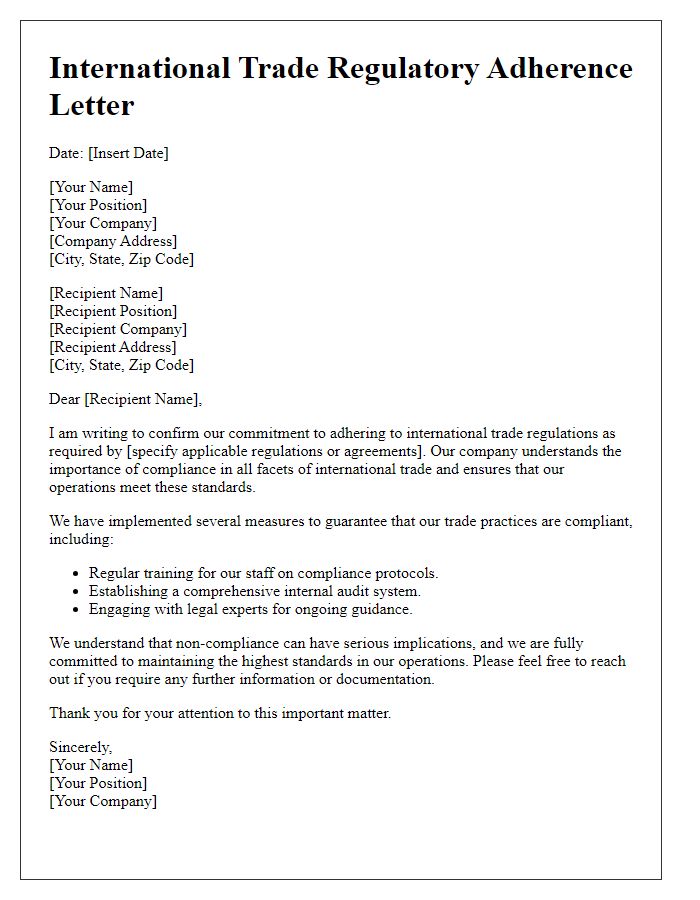
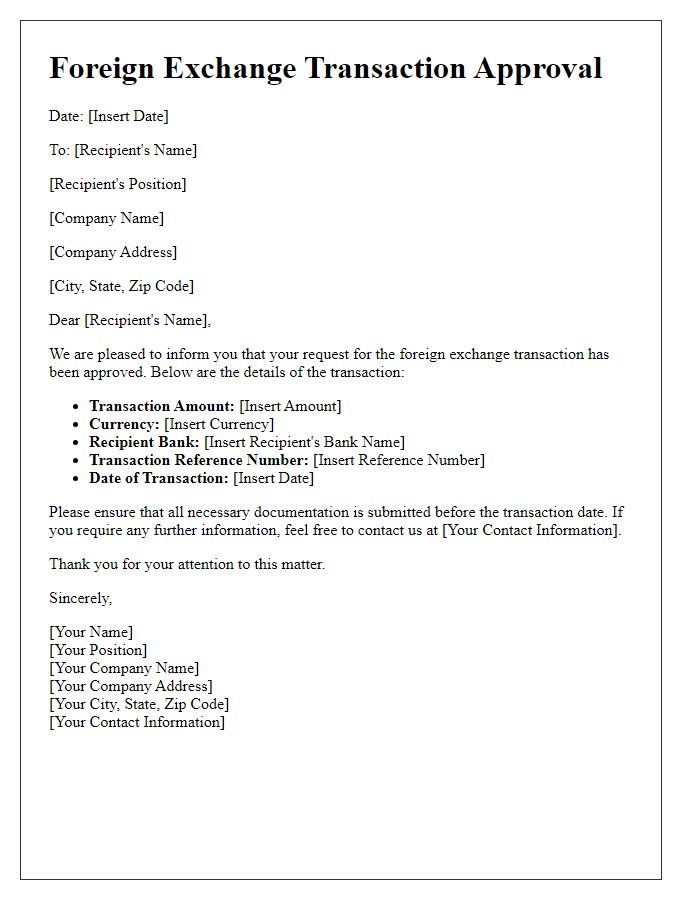
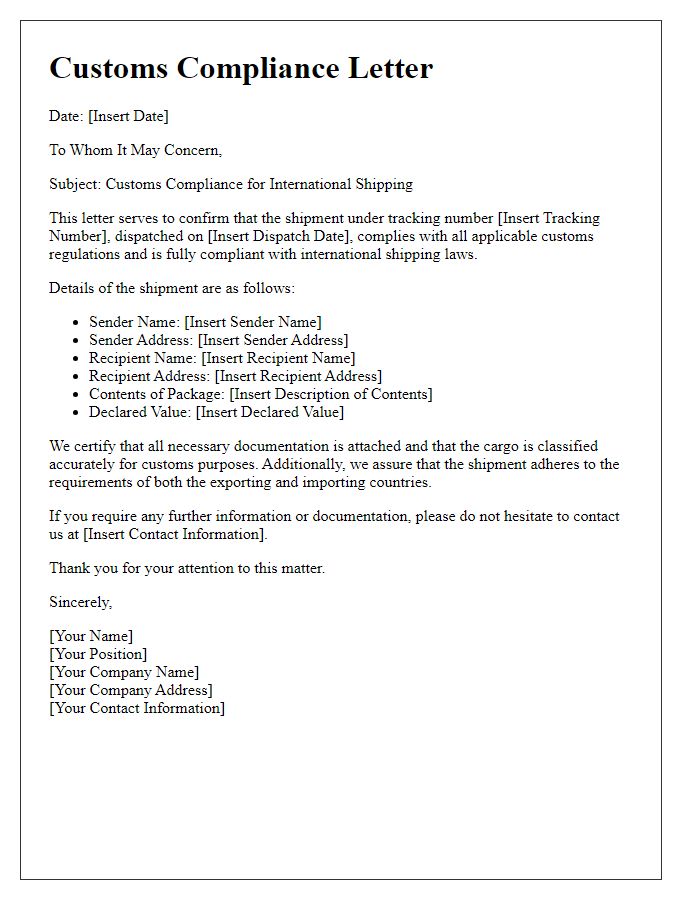
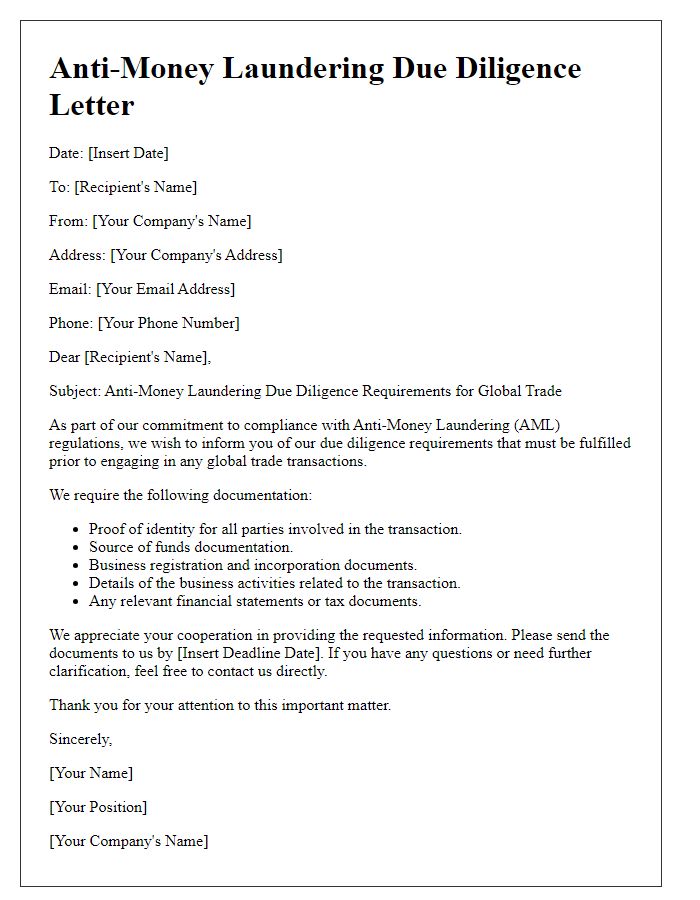
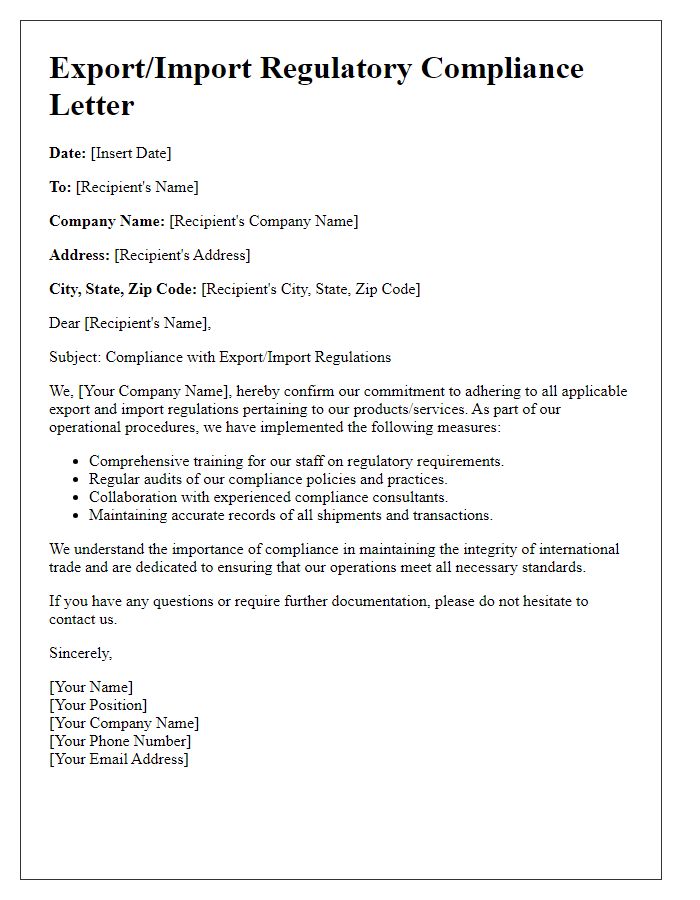
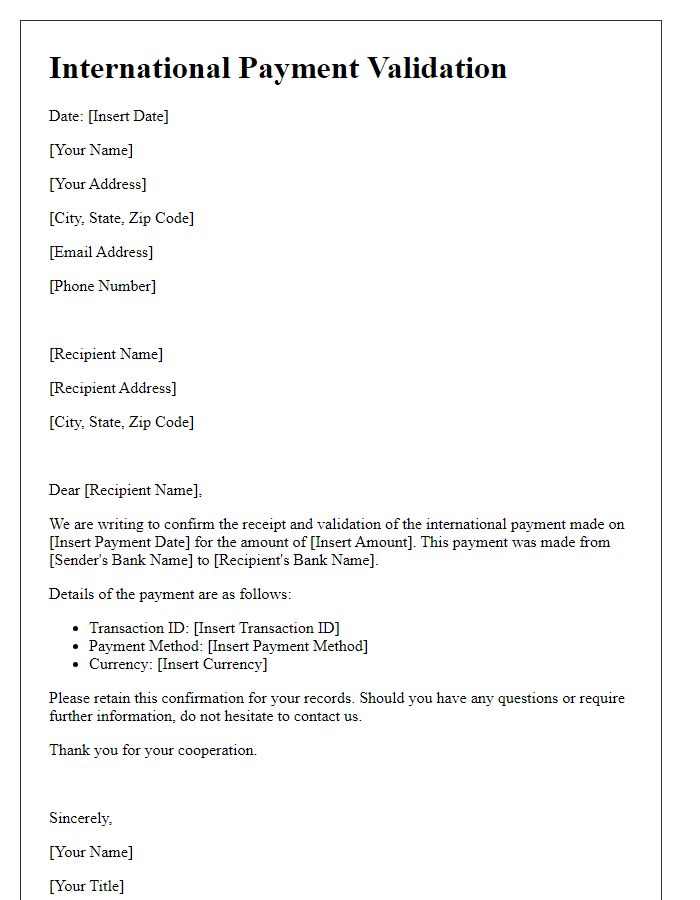
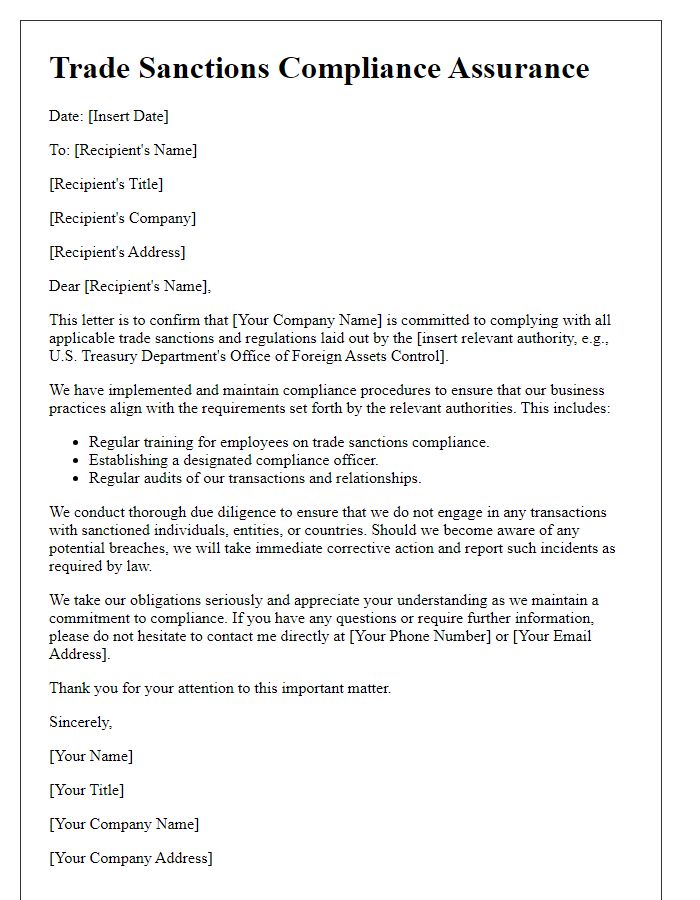
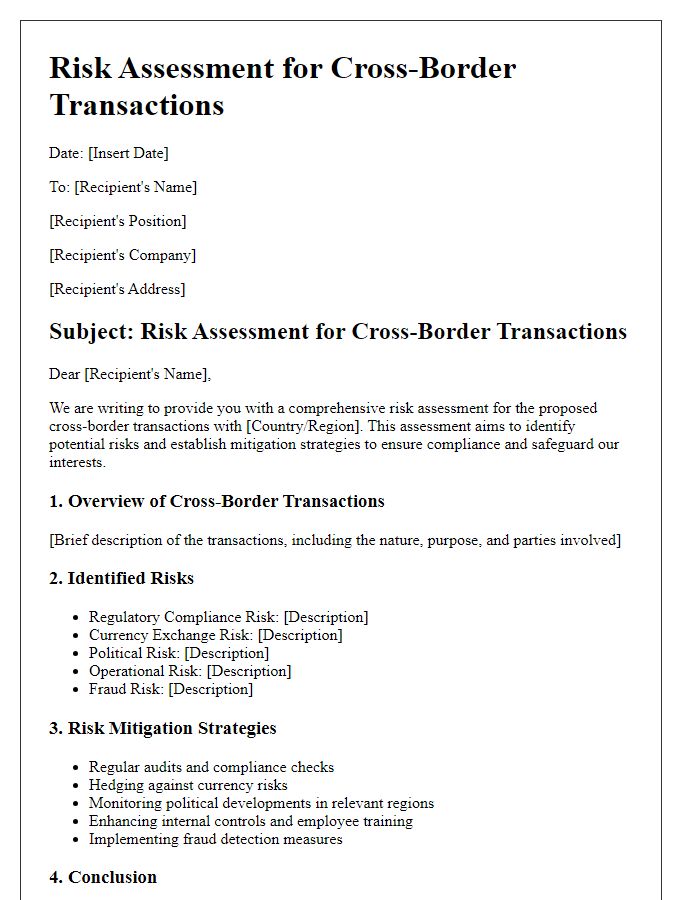

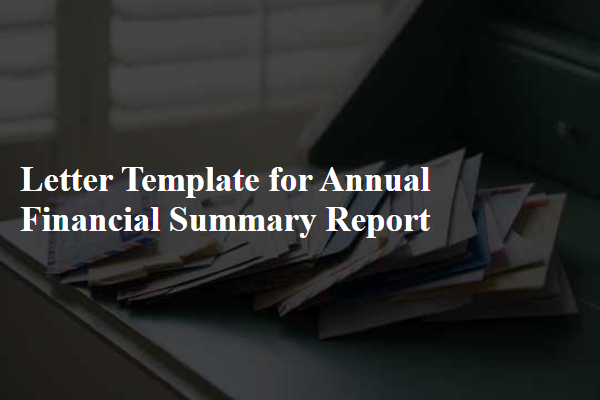
Comments